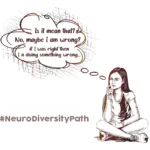Have you ever wondered what it truly means to be compassionate? Cultivating compassion can be a beacon of light amidst the darkness in a world that often feels cold and indifferent. But how can we increase our capacity for compassion in our daily lives? In this blog post, we’ll explore four simple yet powerful tips for nurturing compassion within ourselves and toward others. From small acts of kindness to profound shifts in perspective, each tip offers a pathway to deeper connections and greater empathy. Incorporating these tips into your life will enhance your relationships and sense of fulfillment and contribute to a more compassionate and understanding world. Join us on this journey of exploration and discovery as we unlock the transformative power of compassion together.

Small Acts, Big Impact
– The Power of Small Acts
Small acts of kindness may seem insignificant, but they have the potential to create profound ripples of compassion in the world. Research conducted by Dr. Sonja Lyubomirsky at the University of California, Riverside, has shown that performing acts of kindness can boost happiness and well-being. Start by practicing simple acts of kindness in your daily life, such as offering a genuine compliment, lending a listening ear, or performing random acts of kindness for strangers. Notice these small acts’ impact on yourself and others, and allow yourself to savor the positive emotions that arise. By embracing the power of small acts, you can make a meaningful difference in the lives of those around you and contribute to a more compassionate society.
– Spreading Positivity
Small acts of kindness benefit both the giver and the recipient, creating a ripple effect of positivity. Kindness is contagious, inspiring others to pay it forward. No matter how small, each gesture can spark a chain reaction of goodwill. Be intentional about spreading positivity in your interactions. Smile at a stranger, offer a helping hand, or simply listen to someone who needs to talk. These small actions can make a significant difference in someone’s day.
Observe how kindness breeds more kindness. When people witness or experience acts of kindness, they are often moved to act kindly themselves. This creates a wave of compassion that extends far beyond the initial act. By modeling kindness in your community, you set an example for others. Encourage your friends, family, and colleagues to join in. Foster an environment where kindness is the norm, not the exception.
Celebrate the collective impact of small acts of kindness. Acknowledge the power of these actions to transform communities and improve lives. Together, we can create a more compassionate and connected world. Recognize that each act of kindness contributes to a greater whole, building a network of care and empathy. By working together, we amplify the positive effects of our individual efforts.
In every interaction, make a conscious choice to be kind. Understand that your actions, however small, have the potential to inspire others and create lasting change. By consistently practicing kindness, we contribute to a culture of compassion and understanding. Let’s embrace the power of kindness and strive to make it a fundamental part of our daily lives.
Seeing Through the Eyes of Compassion
– Cultivating Empathy
Seeing through the eyes of compassion begins with cultivating empathy, the ability to understand and share the feelings of others. Take time to actively listen to others, seeking to understand their perspectives and emotions without judgment. Put yourself in their shoes, imagining how you would feel in their situation. Practice empathy in daily interactions, from listening to validating others’ emotions. By nurturing empathy within yourself, you can begin to see the world through the lens of compassion, fostering deeper connections and understanding with those around you.
Developing perspective-taking skills is essential for seeing through the eyes of compassion. Challenge yourself to consider multiple viewpoints in a given situation, recognizing that everyone experiences the world differently. Engage in perspective-taking exercises, such as imagining yourself in someone else’s situation or discussing complex issues from various angles. Practice active listening and reflection to understand the underlying emotions and motivations behind others’ perspectives. By honing your perspective-taking skills, you can broaden your understanding of others and deepen your capacity for compassion.
– Cultivating Compassionate Action
Cultivating compassionate action is the culmination of seeing through the eyes of compassion. Translate empathy into action by offering support to a friend in need, volunteering in your community, or advocating for social justice causes. Reflect on the impact of your actions and celebrate the positive difference you’re making in the lives of others. By consistently practicing empathy, perspective-taking, and compassionate action, you can become a beacon of compassion in a world that sorely needs it.
Practical Ways to Connect with Others
– Engaging in Active Listening
Practical ways to connect with others start with engaging in active listening, a foundational skill for building meaningful relationships. Research by Dr. Graham Bodie at Louisiana State University has shown that active listening promotes trust, understanding, and rapport. Practice attentive listening by giving your full attention to the speaker, maintaining eye contact, and nodding or providing verbal cues to show your engagement. Focus on understanding the speaker’s perspective without interrupting or formulating a response. Validate the speaker’s emotions by reflecting on what they’ve said and acknowledging their feelings. By prioritizing active listening in your interactions, you can foster deeper connections and cultivate empathy and understanding with those around you.
– Sharing Personal Experiences
Another practical way to connect with others is by sharing personal experiences, which can create bonds of empathy and shared understanding. Research by Dr. Arthur Aron at Stony Brook University has shown that self-disclosure fosters intimacy and closeness. Open up about your own experiences, thoughts, and feelings genuinely and vulnerably, allowing others to see your authentic self. Be willing to listen and empathize with others’ experiences, creating a reciprocal exchange of trust and understanding. Find common ground in shared experiences or feelings, strengthening the connection between you and the other person. Sharing personal experiences can deepen your relationships and foster a sense of belonging and connection.
– Practicing Empathy and Compassion
Empathy and compassion are essential for building and maintaining meaningful connections with others. Research by Dr. Sara Konrath at Indiana University has demonstrated that empathy and compassion promote prosocial behavior and positive relationships. Put yourself in others’ shoes and seek to understand their perspectives and emotions. Offer support and encouragement to those in need, demonstrating care and concern for their well-being. Show kindness and empathy in your interactions, even in small gestures such as offering a listening ear or a comforting hug. You can create a supportive and nurturing environment where authentic connections thrive by prioritizing empathy and compassion in your relationships.
How Compassion Transforms Lives
– Improving Mental Health
Understanding how compassion transforms lives starts with recognizing its profound impact on mental health and well-being. Practice self-compassion by treating yourself with kindness and understanding, especially during struggle or difficulty. Cultivate a compassionate mindset towards yourself and others, recognizing all individuals’ inherent worth and dignity. By prioritizing self-compassion, you can improve your mental health and build resilience in the face of life’s challenges.
– Fostering Positive Relationships
Compassion plays a pivotal role in fostering positive relationships and social connections. Express kindness and empathy towards others, nurturing trust and intimacy in your relationships. Listen actively and show genuine concern for the well-being of others, fostering a sense of belonging and connection. Practice forgiveness and let go of grudges, promoting harmony and understanding in your interactions. By fostering compassion in your relationships, you can cultivate deeper connections and create a supportive network of individuals who uplift and empower each other.
– Contributing to Social Change
Compassion can inspire positive social change and create a more just and equitable world. Take action to address social inequalities and injustices, advocating for marginalized communities and promoting inclusivity and diversity. Support charitable organizations and volunteer your time and resources to make a difference in the lives of those in need. Use your voice to speak out against discrimination and oppression, advocating for a world where compassion and empathy prevail. By harnessing the transformative power of compassion, you can contribute to positive social change and create a brighter future for all.
“Compassion brings us to a stop, and for a moment we rise above ourselves.”
Mason Cooley
In conclusion, we’ve explored the profound impact of compassion on our lives, from improving mental health and fostering positive relationships to inspiring positive social change. By cultivating empathy, practicing kindness, and embracing a compassionate mindset, we can create a ripple effect of positivity and transform our lives and those around us. Delving into the research and insights on compassion has reaffirmed my belief in the transformative power of empathy and kindness. It’s a reminder that even small acts of compassion can have far-reaching effects and that we can contribute to a more compassionate and empathetic world for all by prioritizing compassion in our daily lives.
What are your thoughts on the transformative power of compassion? How do you incorporate compassion into your daily life? Share your reflections in the comments below.





